World War 1 st read my article.
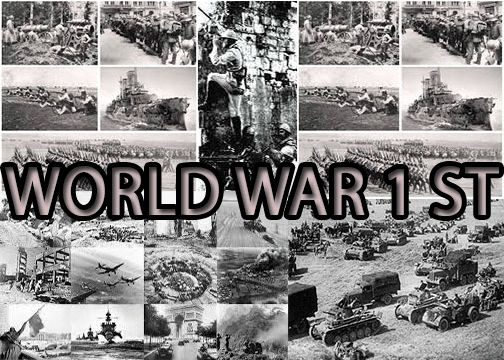
In late July 1914, World War I broke out in the Balkans of southeastern Europe. As a result, 16 million people were killed and 20 million were injured. After so many years of war, the reason for its origin is still a controversial and widely discussed issue.

Analyzing the long-term causes of the war will explain why the two alliances of the world's superpowers (Germany on one side, the Austrian-Hungarian alliance on the other, France, Russia, Serbia, Britain) were involved in the war. The reasons for this are political, regional, economic conflicts, military power, the complexity of various alliances and their formations, imperialism, the emergence of nationalism, the imbalance of power caused by the fall of the Ottoman Empire, and so on.


Analyzing the short-term reasons, it can be seen when and how the two alliances got involved in the war immediately in the context of any incident. The immediate cause is the murder of Archduke Franz Ferdinand, heir to the throne of the Austro-Hungarian Empire, and his wife, Duchess of Hohenberg Sophie, in July 1914.

In June 1914, Archduke Franz Ferdinand, heir to the throne of the
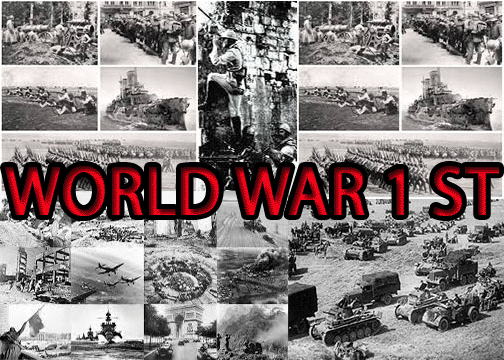
Austro -Hungarian Empire in Europe, was assassinated in the city of Sarajevo. From the course of events that the outbreak of World War I began, it began with this massacre. June 26, 1914. The city of Sarajevo was visited by Archduke Franz Ferdinand, heir to the throne of the Austro-Hungarian Empire. People were encouraged to gather on both sides of the road. The sky was clear and sunny that day. But not everyone was happy on the day of the Archduke's visit to Sarajevo. Many young Bosnian nationalists are furious that the Austro-Hungarian Empire has occupied their country. The Austro-Hungarians have been there for 16 years. During this time they did not change the old system. The peasants are still like the slaves of




the feudal landlords. It was a situation of old colonial exploitation. The Austro-Hungarians were interested in one thing. That is wood. The Bosnian valleys are rich in timber. They would take that wood - but the locals would get nothing in return. A section of the Bosnian youth decided against this imperialist regime, they would do something against it themselves. The group's leader was a 19-year-old Bosnian Serb. Son of a poor farmer. His name is Gavrilo Princip . The assassins easily took

their place in the rally that took place that Sunday morning along Sarajevo's main boulevard. Then wait - when the Archduke will pass in front of them. When the royal convoy approached them, one of them threw a grenade, injuring several. On the way back, Gavrilo Princip shot at Archduke with a revolver. A bullet hit Archduke. The other slammed the car door and hit Sophie. News spread quickly that Archduke of Austria and his wife had been shot dead by a student in Sarajevo.
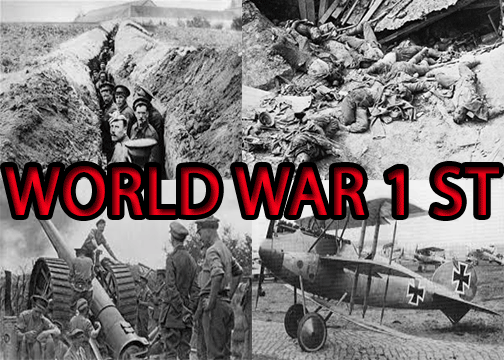
The Austro-Hungarian Empire called on Serbia to take appropriate action. International relations in that era were full of secrecy and complexity. Due to the historical enmity of France, Britain was initially friendly towards Germany. But as Germany began to compete with Britain in naval technology, the relationship became more competitive. German-French relations have deteriorated since the Franco-Prussian War. The French therefore allied with Russia. Austria-Hungary saw Russia as a threat, so they signed an alliance with Germany. With the rise of Serbia,

Slavic nationalism became stronger. Given the opportunity, Austria-Hungary cornered Serbia. Russia, Serbia's ally, dared to loudly ignore the Serbian threat and began mobilizing troops. Different alliance agreements, weak communication systems and various distortions of truth at different stages push the statesmen towards the decision of war. On July 26, 1914, Austria-Hungary declared war on Serbia. The next day Russia got involved in the war through a rally of troops.

As a result, Germany was also prepared for war. Meanwhile, French troops began rallying in support of Serbia. After the assassination of the Crown Prince, Germany was, as it were, expected to win a brief, regional war against Serbia. So they allowed Austria to invade Serbia as they wished. Which is a huge mistake! Germany's unprecedented support for Austria has sparked unwelcome hostility from France and Russia, who are terrified of the prospect of future German power! Although Russia and France joined the war,

Germany was dealing with them well, but in the eyes of Britain, a new and stronger Germany was a bigger threat than Russia and France, so they declared war on Germany in accordance with the previous agreement and to protect their power. The arrival of a superpower like Britain poses a huge threat to Germany! In the midst of internal political changes, Russia was defeated and withdrew from
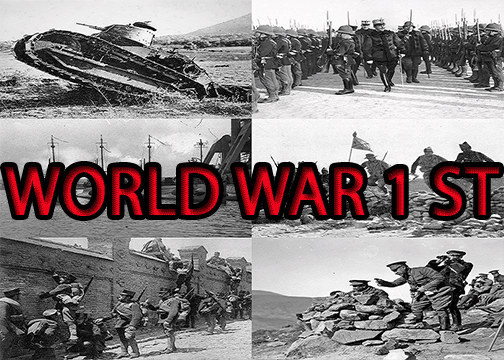
the war. Massive loss of troops and resources and communist propaganda ensured the fall of the emperor and the defeat of Russia! Already in the midst of a three-year war and winter invasion of Russia, the German army, which had suffered heavy losses, showed recklessness by attacking American ships!


The attack of the German navy ensures the ultimate German defeat by calling the sleeping giant United States to war! (Such a strategic mistake was made possible by the Germans again in World War II.) In addition, the rise of Germany, which

dreamed of establishing a new empire around the world to procure the raw materials needed for industrialization, was a sure threat to France, Britain and France-Russia and the United Kingdom. Let's unite! And after 4 years of massive damage, the Hohenberg (Austrian) Ottoman (Turkish) and Romanov (Russian) empires are doomed to defeat the 3-century-old once dominant empire! And by moving away from the policy of hiding themselves and joining the end of the war, the United States sits in the seat of the main hero!






Although the killings have been blamed for the outbreak or the direct cause, historians have blamed a number of other factors for the war.

Thank You All Friends.





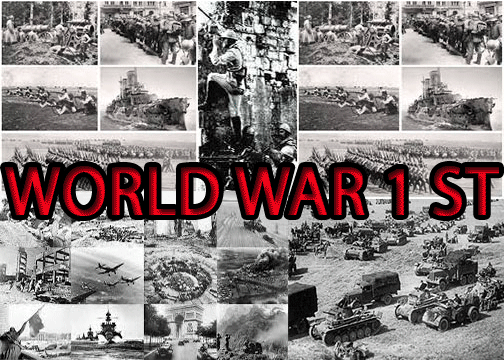





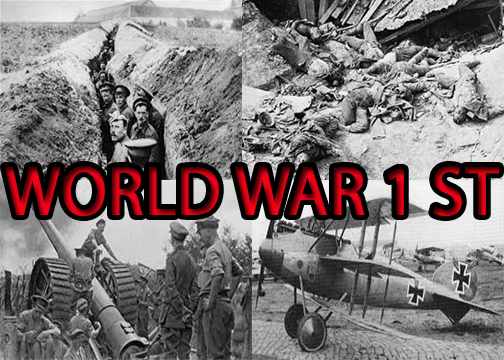
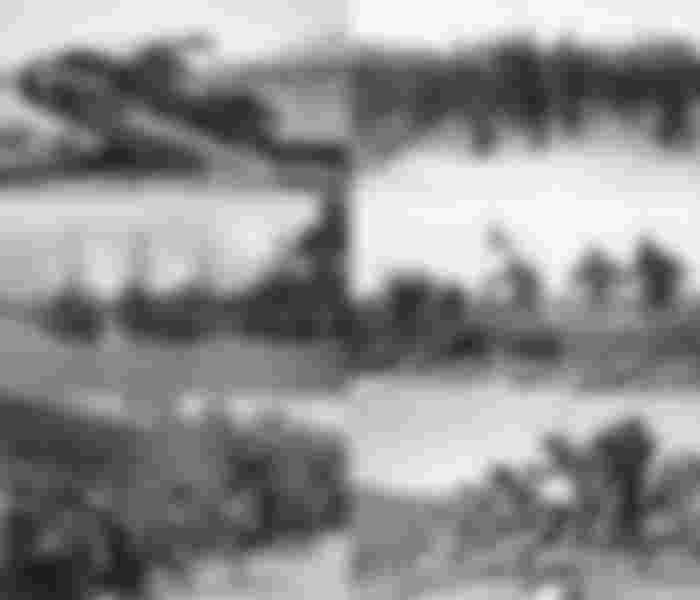

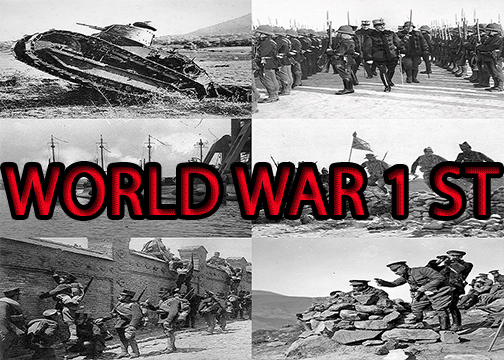







Nice nd Good post